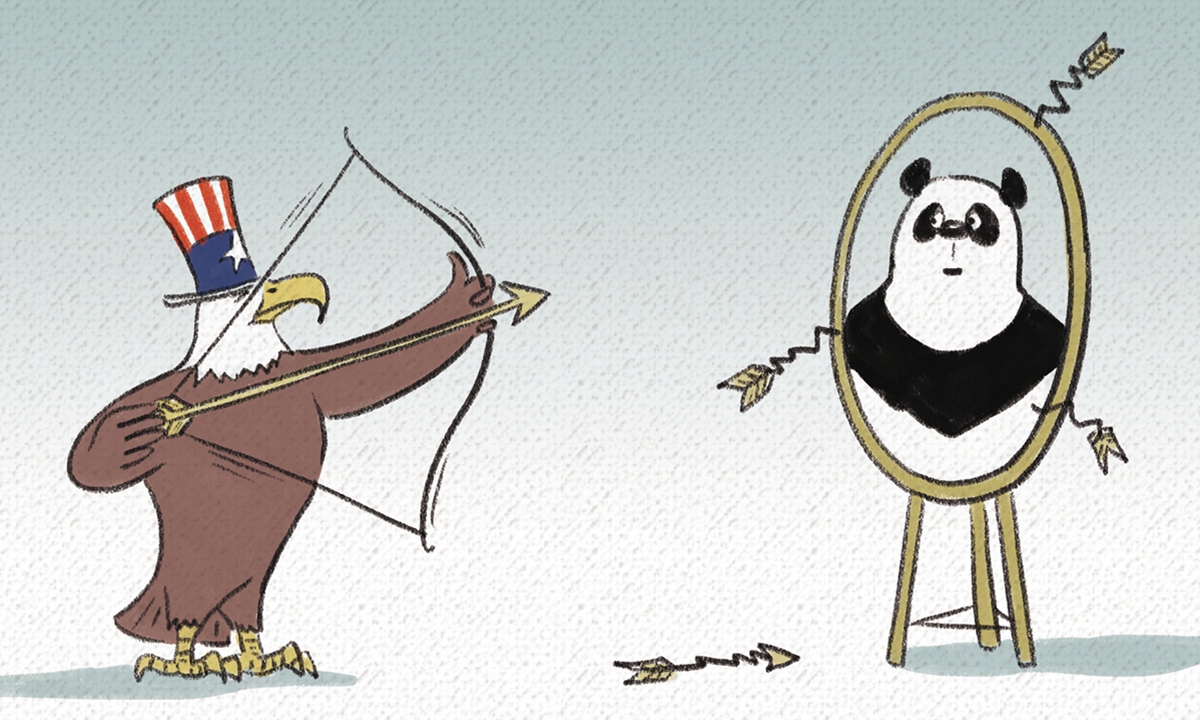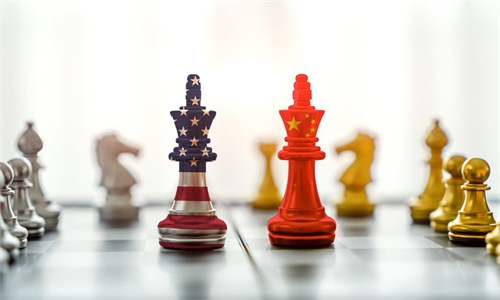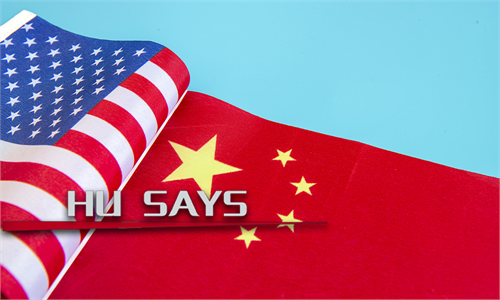
Illustration: Liu Rui/GT
When it comes to China, American political elites have apparently given up their ability to think. What they only focus on now is how to blame China. This is exemplified again in the Tuesday opinion piece by The New York Times columnist Thomas L. Friedman, entitled "How China Lost America."
Friedman's article has a strongly whiny tone. He argues that Beijing is mainly to blame for its growing rift with Washington. The author particularly named four major trends in China that he claims worsened its ties with the US - the failure of the Chinese economy's opening-up, Chinese nationalism, a much more aggressive Chinese foreign policy, and the country's zero-COVID policy.
Friedman's article is clearly barking up the wrong tree. Under the strong influence of US' political correctness that champions bias against China, Friedman's arguments are, as expected, biased and without proper reasoning. If he wants to find the culprit for the deterioration of China-US relations, shouldn't he just ask White House officials and his country's political elites?
China never seeks a "decoupling" from the US. It just doesn't want to follow the path set by the US, which fails to meet the latter's expectations and angers it. As one Chinese netizen pointed out, if China "lost" the US only because it insists on developing independently and safeguarding its sovereignty and territorial integrity, then there is no point in maintaining such a relationship.
On the contrary, it is the toxic and distorted US politics that has led to the current status of China-US relations. A Chinese international relations scholar, who requested anonymity, told the Global Times that it is an inveterate habit of Washington to shift all the problems in its ties with China onto Beijing instead of self-reflection.
The theory that China is losing the US is only wishful thinking of some American elites. China and the US cannot and will not lose each other due to their strong ties, whether in people-to-people and cultural exchanges or economic cooperation. If any US elite tries to push for a "decoupling" with China, then they are just isolating themselves from the majority of the US public that wants better bilateral relations with China.
In fact, in terms of China-US ties, the US is no stranger to an argument about if one lost the other. After the Communist Party of China took control of most parts of China in 1949, the "loss of China" suddenly became a hot topic in US political circles, with elites and politicians trying to find who to blame.
But comparing this to Friedman's statement, it is evident that the political reality in China-US relations has changed radically in seven decades.
In 1949, there was a massive gap between the power of China and the US. Therefore, China was considered a more passive role, as shown in the discussion of the "loss of China." But as this gap narrows, Beijing has become more independent, seeking to safeguard its interests and engage with the US on equal footing in bilateral relations. As a result, American elites like Friedman started to discuss China's enormous influence on China-US relations.
When having a discourse about the "loss of China," American elites still knew how to reflect on themselves and look for problems from within their politics. But today, they only want to play the role of an innocent victim, while ignoring their own short-sightedness and prejudice against China, as well as all the restrictions and provocations they have made against China. They are deluding themselves to avoid facing up to reality.
To this day, mainstream American elites still view China with arrogance and condescension. They do as much as possible, including clamoring for more confrontation with China, to cater to the voters and the anti-China sentiment.
Friedman has become a propaganda tool of the White House that keeps indoctrinating Americans, especially his fellow political elites, with false claims. But such a self-deceptive move will only make the US go further and further down the wrong path.
This has resulted in various domestic crises in the US, as well as the decline of reputation and influence in the world, noted the above-mentioned Chinese scholar. And when they can't find a solution, they shift the blame onto China, which keeps growing steadily and rapidly, unlike the US.
"It is like the sick US trying to find the cause of its disease in China. This will not help it to cure itself but only worsen its health," he said.


